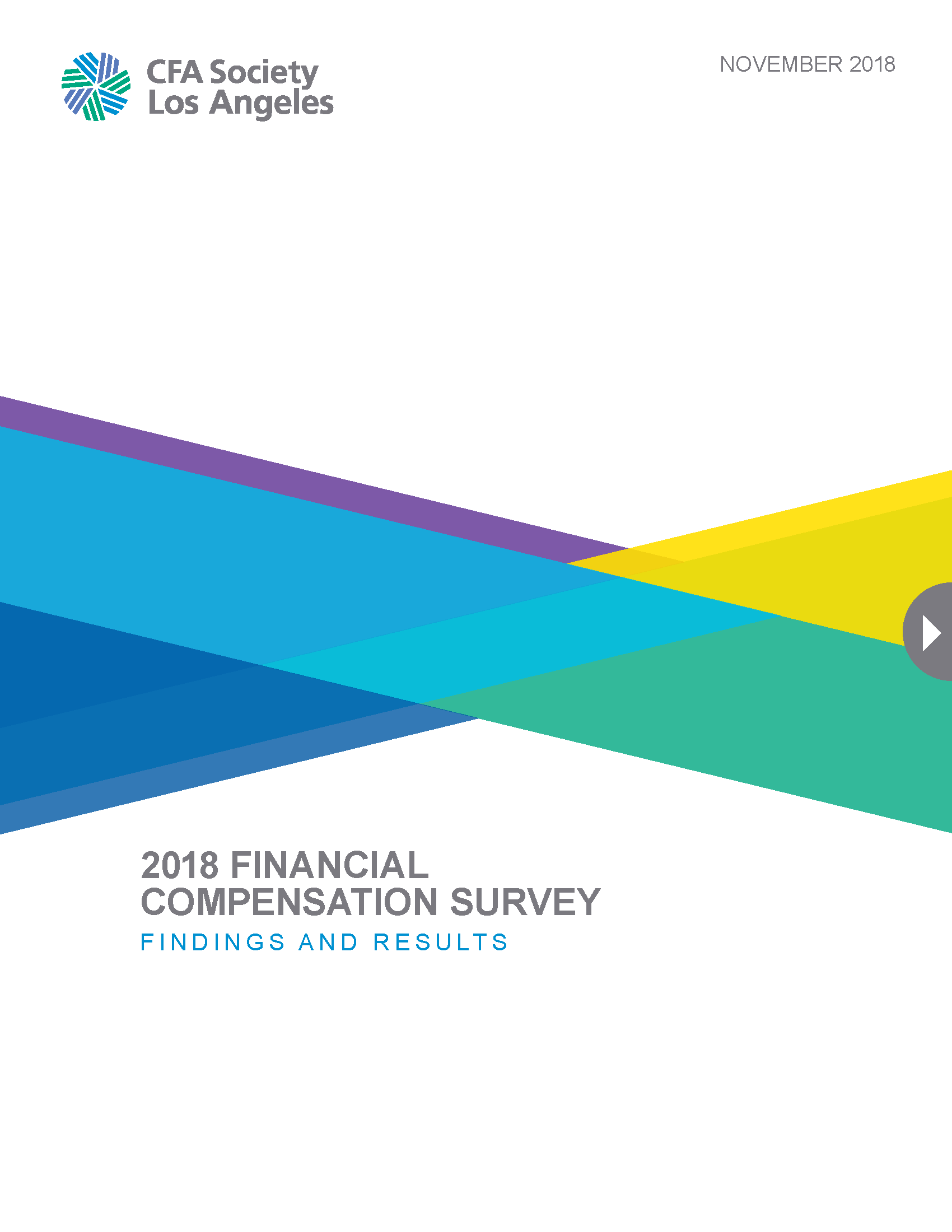2018 Financial Compensation Survey
We are excited to announce the highly anticipated findings of the 2018 Financial Compensation Survey. The survey, which had been void in the market since 2007, provides a unique, region-specific analysis of compensation levels for investment and financial professionals. This whitepaper captures the findings of the survey, providing an overview of the survey-wide results. (Click the image below to read the 2018 Financial Compensation Survey.)
Executive summary
Access to accurate and data-driven information plays a significant role in the ability of financial and investment professionals to effectively perform in their careers. The same is true to successfully advance one’s career.
The 2018 CFA Societies Financial Compensation Survey seeks to provide access to this vital information. This report is a compilation of the results from a survey on compensation practices in the greater LA area conducted earlier this year; 725 professionals completed the survey.
Remaining true to the stated commitment to provide an accurate snapshot of the compensation levels for the entire financial and investment industry, the survey findings are presented to demonstrate compensation based on the most popular positions and other demographics.
The survey requested self-reported data on numerous aspects of compensation. In addition to covering base salary and total compensation, the survey addressed the respondent’s CFA Charterholder status, level of education, and occupation. Information on the type and size of the firm as well as the amount of assets under management were included in the survey. The survey captured expected annual salary change data, plus the respondent’s view on the adequacy of compensation and the desire to explore other job opportunities.
The 2018 Financial Compensation Survey data and exhibits are intended to provide general guidance for comparing compensation levels with overall values for key categories. Note that actual compensation potential may vary relative to the numbers generated by the survey given the use of relatively broad category definitions. Also, the estimation of compensation based on any single factor may not predict reasonably accurate estimates. Details surrounding actual job responsibilities and the confluence of multiple factors may result in higher or lower compensation levels.
Survey Methodology
Method
An online survey was deployed to known financial professionals in the region represented by CFA Society Los Angeles. Email subscribers of the Society and LinkedIn group members were specifically targeted. The survey was not limited to just these audiences. In addition, this survey was structured so all data gathered was anonymous, with no identifiable information requested.
Respondents
Respondents were financial and investment professionals and totaled 725 unique and completed responses.
Timing
The survey was active from May 14 – June 22, 2018.
Assumptions
The findings from this survey were derived from self-reported data. Because the survey uses sampling methodology and broadly defined positions, survey findings are not necessarily representative of the total population; rather, the survey is designed to provide general information about pay levels within the industry. Earning any degree or professional designation is no guarantee of employment or compensation.


